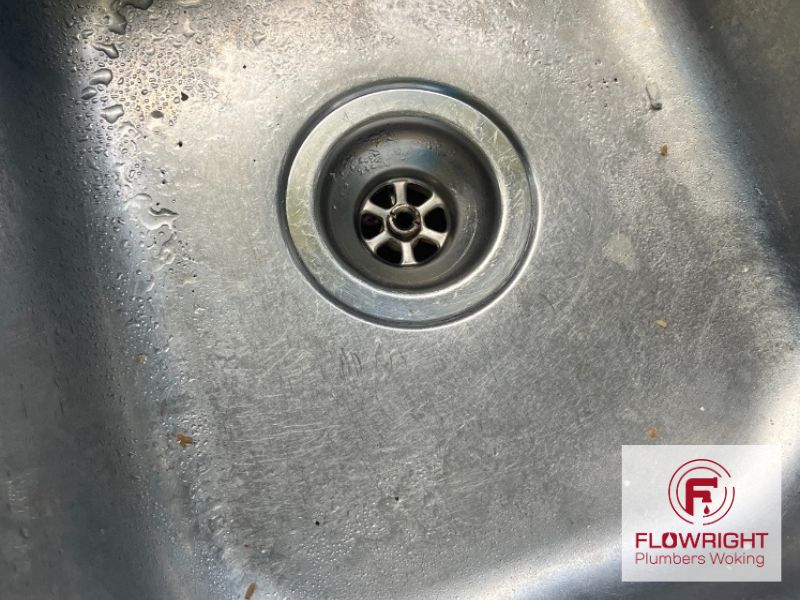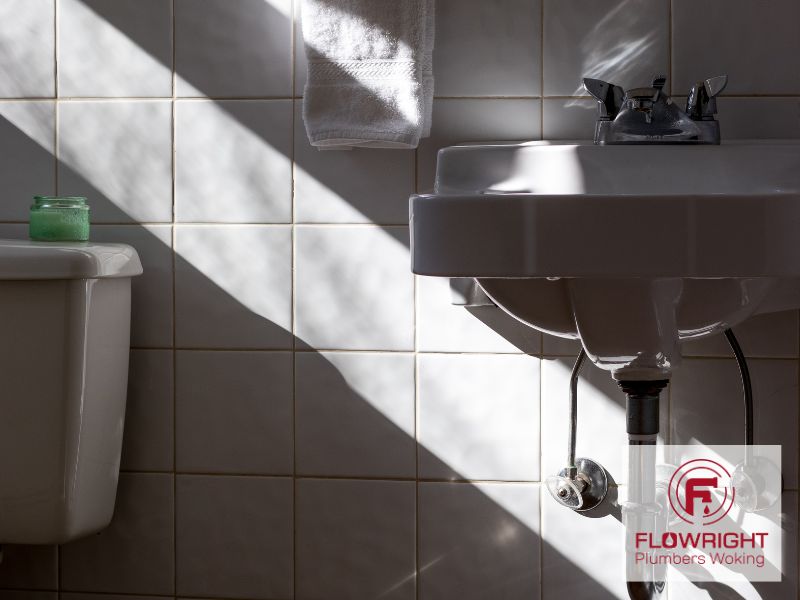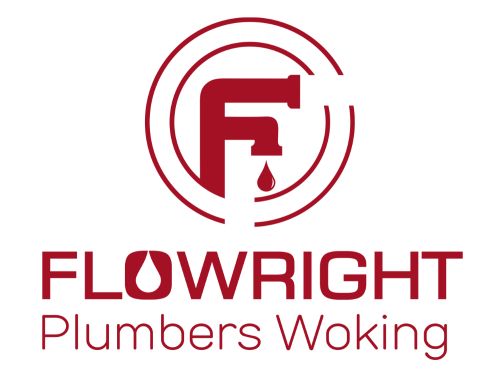Welcome to the world of plumbing, where pipes flow and drains ensure cleanliness. Taking care of your home’s plumbing system is like maintaining a well-functioning machine – it requires attention, care, and knowledge.
In this guide, we will provide you with essential tips for plumbing services to ensure that your plumbing system remains in excellent condition.
Imagine your home as a boat navigating the vast ocean of everyday life. Your plumbing system acts as its anchor, keeping everything stable. To maintain this balance, regular examination and cleaning of drains and pipes are crucial. By doing this, you can prevent any potential blockages that may disrupt the smooth flow of water.
Clogs can be a nuisance, but fret not! By taking some precautionary measures, you can prevent them from causing trouble. We will show you how to keep them at bay.
Leaks can be tricky and cause significant disruption if left unattended. Don’t let them take control! Make sure to regularly check for leaks and promptly repair them to avoid any damage.
Proper water pressure is vital for every plumbing system. Learn how to maintain optimal water pressure for the best performance.
Lastly, do not underestimate the importance of professional inspections and maintenance. These experts will ensure that your plumbing system remains in good condition throughout its lifespan.
So, join us on this journey as we delve into the basics of caring for a home plumbing system in the UK – because excellent service begins with taking care of what lies beneath our feet.
Regularly inspect and clean drains and pipes.
Regularly inspect and clean drains and pipes.
Inspecting and cleaning drains and pipes is essential for maintaining a healthy home plumbing system in the UK. It is important to include drain and pipe maintenance as part of your household routine to prevent blockages, clogs, and leaks that can result in costly repairs.
Start by visually examining your drains for any signs of buildup or slow drainage. If you notice any problems, it is crucial to address them immediately before they worsen.
To effectively clean your drains, use a mixture of hot water and vinegar or a chemical drain cleaner that is suitable for the type of pipes you have. Additionally, consider using drain covers or strainers to catch hair, food particles, and other debris that can cause clogs.
By taking these proactive measures, you will keep your drains clear and ensure that your pipes function properly for many years to come.
Take Precautions to Avoid Clogs and Blockages
To prevent clogs and blockages in your drains and pipes, it is important to take certain precautions.
Firstly, avoid pouring grease and food waste down the sink. Grease can solidify and cause blockages, while food waste can build up and create obstructions.
It is also recommended to use hair catchers in showers and baths to stop hair from going down the drain and causing clogs.
By following these steps, you can ensure that the plumbing system in your home works properly.
Properly Dispose of Grease and Food Waste
When it comes to maintaining a healthy residential plumbing system, it is important to remember that properly disposing of grease and food waste is essential.
Disposing of grease incorrectly can lead to major issues. Never pour grease down the sink as it can solidify and block your pipes over time. Instead, allow it to cool and then scrape it into a container for proper disposal in the rubbish bin.
Managing food waste is also important. Avoid putting large amounts of food scraps down the waste disposal unit all at once, as this can overload the system. Instead, gradually feed small amounts and run cold water while using the disposal to help flush everything through the pipes.
By following these simple steps, you can ensure that your plumbing system remains clear and free from clogs for years to come.
Use Hair Catchers in Showers and Bathtubs
Make certain that you utilize hair catchers in your showers and bathtubs to prevent blockages, similar to how wearing a helmet safeguards your head whilst cycling. Preventing hair blockages is crucial for maintaining a healthy home plumbing system.
Hair can quickly accumulate in drains, resulting in obstructions that cause slow drainage or even complete backups. By using suitable hair catchers, you can effectively capture the hair before it enters the pipes. When selecting hair catchers, opt for ones with small holes that can trap even the tiniest strands of hair. Additionally, consider acquiring catchers made with durable materials such as stainless steel or silicone, as they are long-lasting and easy to clean.
Do not forget to regularly remove any trapped hair from the catcher to ensure optimal performance. By taking these preventative measures, you can avoid costly plumbing repairs and keep your home’s plumbing system running efficiently.
Check for Leaks and Repair Them Promptly
Keep an eye out for any issues in your plumbing system and ensure to address them quickly to avoid potential water damage and costly repairs. Here are some essential tips for leak detection and plumbing repair:
- Regularly inspect all visible pipes, taps, and fixtures for signs of leaks such as dripping water or moisture buildup.
- Check your water meter reading when no water is being used to determine if it is still rising, which could indicate a hidden leak.
- Test the toilet by adding a few drops of food colouring to the cistern. If the colour appears in the bowl without flushing, you will need to replace the leaky flapper valve.
- Immediately fix small leaks using waterproof tape or pipe sealant to prevent them from worsening over time.
- In the case of larger leaks or burst pipes, turn off the main water supply and contact a professional plumber for immediate assistance.
By being vigilant and promptly addressing leaks, you can maintain a healthy home plumbing system and avoid unnecessary expenses.
Maintain the correct water pressure.
Maintaining correct water pressure is crucial for a healthy home plumbing system. To ensure optimal water pressure, it is important to regularly inspect your pressure regulators and make adjustments if needed. This will help prevent any problems caused by excessive or insufficient water pressure.
It is also important to regularly clean faucet aerators and showerheads to maintain good water flow and prevent blockages. By following these important guidelines, you can effectively maintain the correct water pressure in your home plumbing system and avoid potential issues in the future.
Check Pressure Regulators and Adjust if Necessary
One thing you might not be aware of is the role that pressure regulators play in the plumbing system of your home. These small components are responsible for controlling the water pressure throughout your house. It’s essential to frequently check and adjust these pressure regulators to guarantee optimal performance of your plumbing system.
To start, locate the pressure regulator in your home. It’s usually found near the main water supply line or where the water enters your residence. When you’ve found it, use a spanner to adjust the screw on top of the regulator. Turning it clockwise will enhance the pressure, while turning it anticlockwise will reduce it.
It’s essential to find the ideal balance when tinkering with pressure regulators. Excess pressure can cause leaks and harm to pipes, fixtures, and appliances, while insufficient pressure may result in weak water flow and inadequate operation of plumbing fixtures.
By regularly inspecting and adjusting your pressure regulators, you can maintain appropriate water flow throughout your plumbing system and prevent any possible issues caused by varying pressures. Bear in mind, a healthy home plumbing system starts with having control over its water pressure.
Clean Tap Aerators and Showerheads on a regular basis
Once you have reviewed the pressure regulators and made the necessary changes, it is time to move on to another essential part of managing a healthy home plumbing system: cleaning faucet aerators and showerheads regularly.
This is an essential step to ensure the smooth flow of water and prevent any buildup that could lead to blockages or weakened water pressure.
To keep your faucet aerators in good condition, start by unscrewing them from the spout and soaking them in a mixture of vinegar and water for about 30 minutes. Then, use a soft brush to remove any remaining debris before rinsing them thoroughly and reattaching them.
When it comes to cleaning your showerhead, fill a plastic bag with vinegar and tie it around the showerhead using a rubber band. Let it sit overnight and then rinse it with warm water in the morning.
Remember, regular maintenance of these fixtures will bring several benefits, such as:
- Enjoying a luxurious bathing experience with sparkling faucets.
- Having stress-free mornings with consistent water flow.
- Preventing mineral buildup for better performance.
- Maintaining hygiene by eliminating bacteria accumulation.
- Saving money on costly repairs or replacements.
Schedule professional plumbing inspections and maintenance.
Ensure that the plumbing system in your home remains in excellent condition by regularly scheduling professional inspections and maintenance. This will help you avoid any unexpected surprises, just like a mischievous gremlin lurking in the shadows.
The significance of plumbing inspections cannot be overstated. By having a professional plumbers thoroughly examine your pipes, fixtures, and appliances, potential issues can be identified before they turn into expensive and disruptive problems. A comprehensive inspection will involve checking for leaks, corrosion, clogs, and any signs of damage.
Maintenance is also crucial for maintaining a healthy plumbing system. During these appointments, professionals will clean drains, flush water heaters, replace worn-out parts, and ensure that everything is functioning correctly. This proactive approach not only prolongs the lifespan of your plumbing system but also helps conserve water and energy.
Don’t wait for a major issue to occur; make sure to schedule regular plumbing inspections and maintenance to keep your home’s plumbing running efficiently throughout the year.
Frequently Asked Questions
How frequently should I inspect and clean my drains and pipes?
To maintain the condition of your drains and pipes, it is advised to regularly inspect and clean them. It is recommended to conduct at least one inspection per year, or more frequently if you notice any blockages or slow drainage issues.
For an effective cleaning, you can utilize boiling water, baking soda, and vinegar to remove any debris. Additionally, installing drain screens can prevent hair and other particles from entering the pipes and leading to clogs.
What precautions can I take to prevent clogs and blockages?
To avoid obstructions and blockages, it is crucial to have knowledge about drain maintenance. Were you aware that 90% of all plumbing issues can be traced back to blocked drains? By taking a few precautions, you can prevent expensive repairs and ensure that your plumbing system functions at its best.
Make it a habit to regularly remove debris from sinks and showers, utilize drain screens to catch hair and other particles, and be cautious about what you flush down the toilet.
By following these simple steps, you will be able to maintain a healthy home plumbing system.
How can I check for leaks in my home plumbing system?
To check for leaks in your home plumbing system, start by conducting a thorough visual inspection of all exposed pipes and fixtures. Look for any signs of water damage, such as discolouration or the growth of mould.
Next, monitor the reading on your water meter when no water is being used. If the meter continues to increase, it could indicate a hidden leak.
Finally, listen for any dripping or hissing sounds that may indicate a leaking pipe. Regularly performing DIY plumbing leak detection is crucial for maintaining a healthy home plumbing system and avoiding costly damages.
What are some common causes of low water pressure and how can I maintain appropriate water pressure?
Common causes of low water pressure include blocked pipes, leaks, and faulty pressure regulators.
To maintain the correct water pressure, begin by checking for any visible leaks and repairing them promptly. Ensure that all valves are fully open to allow for maximum water flow.
Regularly clean your pipes to prevent blockages and consider installing a water pressure regulator if necessary.
Remember, maintaining appropriate water pressure is crucial for a functional and efficient home plumbing system.
How frequently should I arrange professional plumbing inspections and maintenance for my domestic plumbing system?
Scheduling professional plumbing inspections and maintenance for your home plumbing system is like having a regular check-up from a trusted doctor. It is recommended to book these inspections annually to ensure the health of your pipes.
There are numerous benefits to this routine. These inspections can identify potential problems before they turn into expensive issues, enhance water efficiency, and prolong the life of your plumbing system. Prioritising this will help keep your home’s plumbing in excellent condition.










